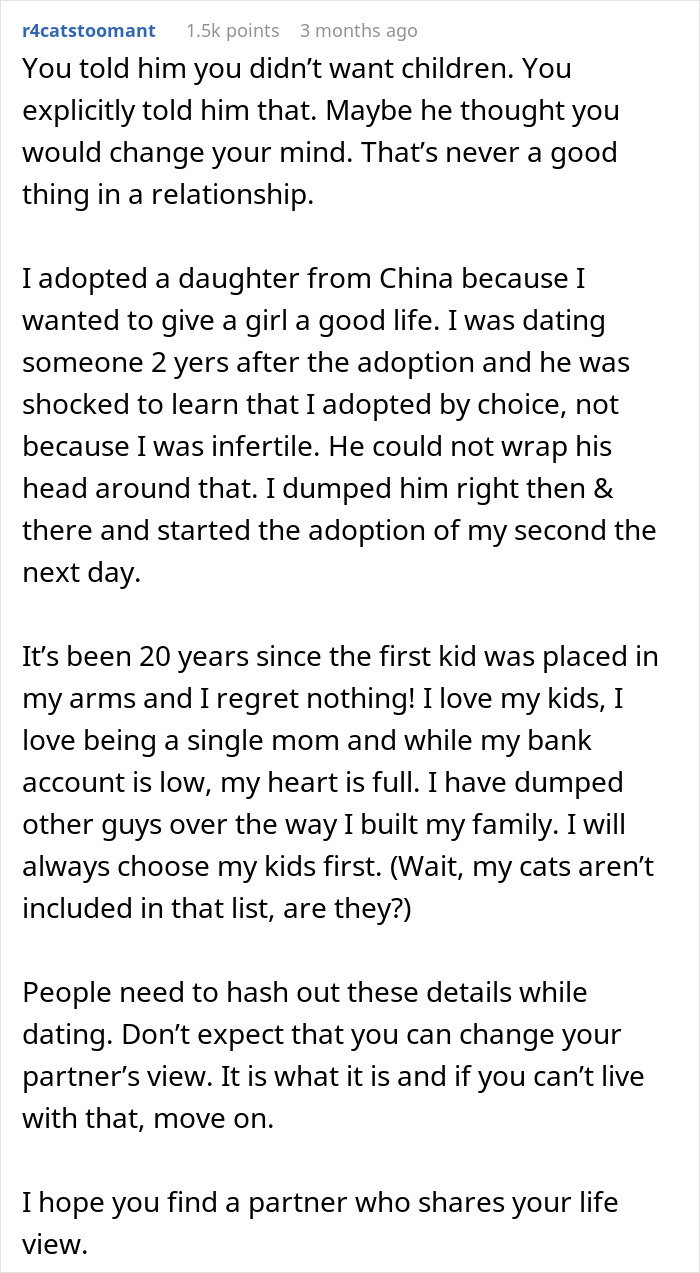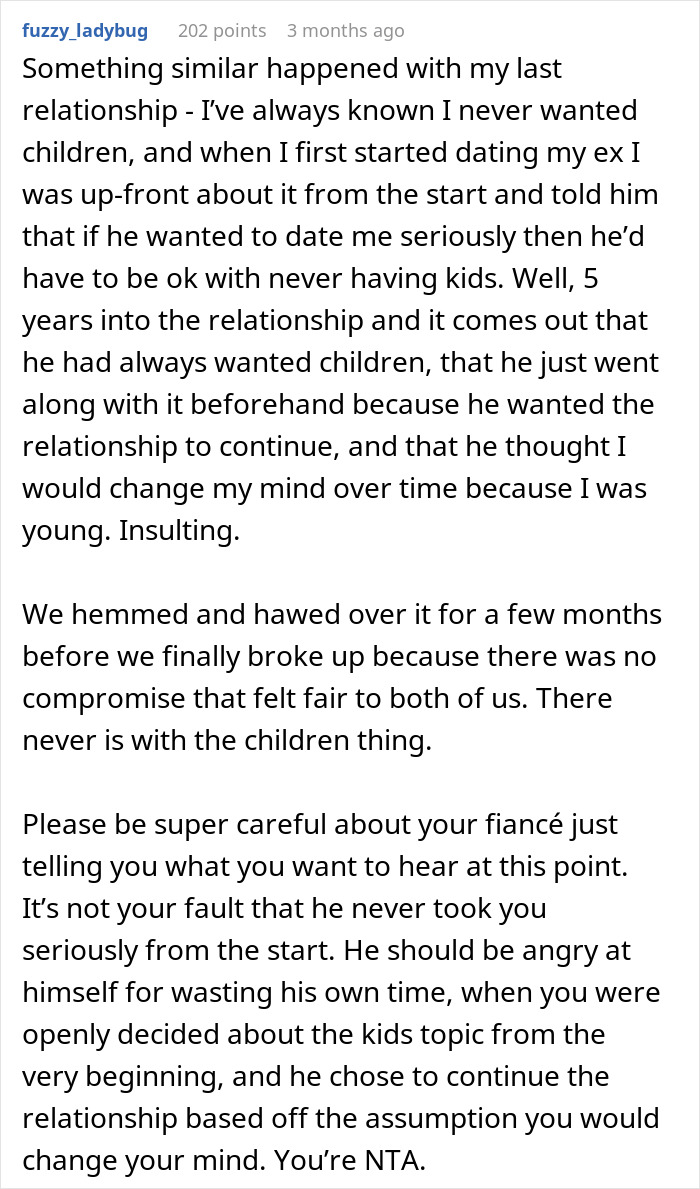As adorable as kids are, some people are just not made to be parents. However, communicating this to potential partners can be tricky, as figuring out when and how to do it can vary based on a myriad of factors.
This woman was always honest and open about not wanting children from the very first date. Just like she did with her current fiancé. However, after being together for 2 and a half years and getting engaged, the partner changed his mind about living a kid-free life. As a result, she was forced to reveal a secret she had been keeping for the entirety of their relationship.
Scroll down to find the full story and a conversation with licensed professional counselor Mark Verber, who kindly agreed to tell us more about when’s the right time to tell potential partners one can’t have children.
A partner changing his mind about wanting kids can be crushing
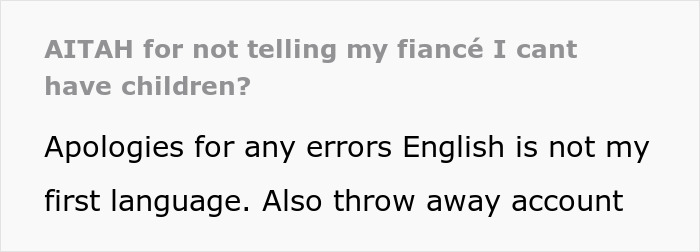

Image credit: Polesie Toys/Pexels (n0t the actual photo)
When this woman received such news, she was forced to reveal a secret that she had been hiding from her partner for almost 3 years
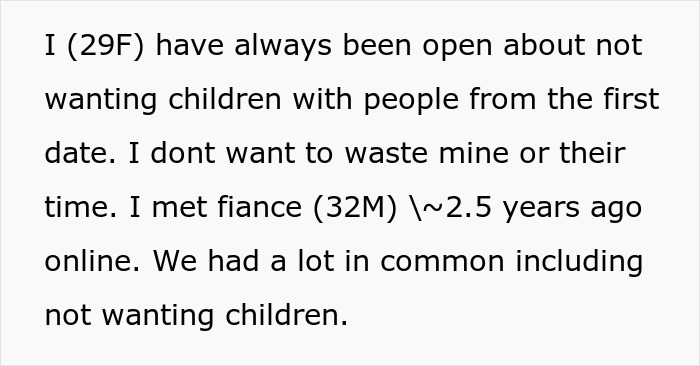
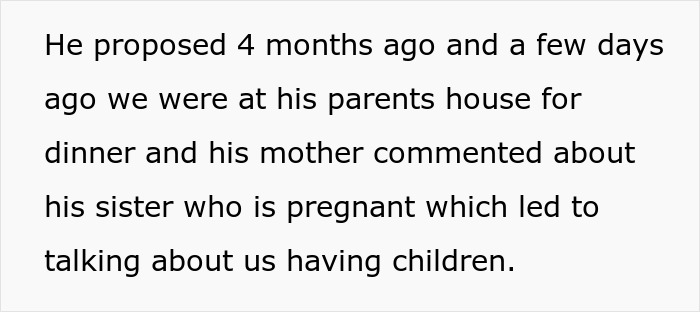
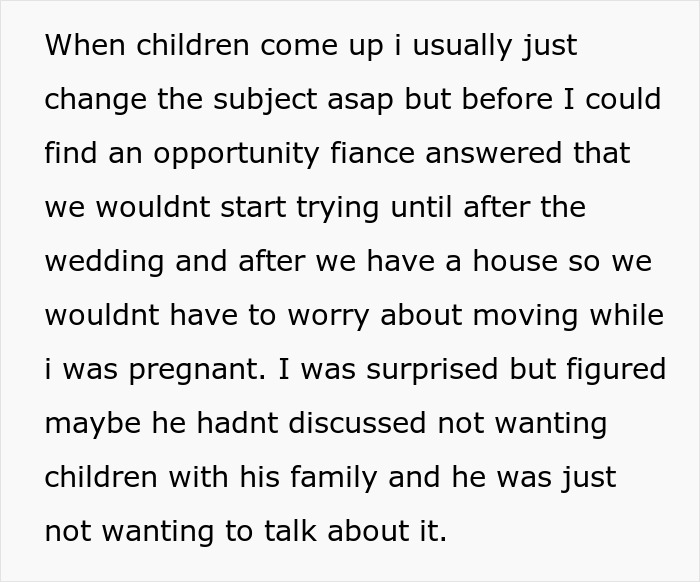
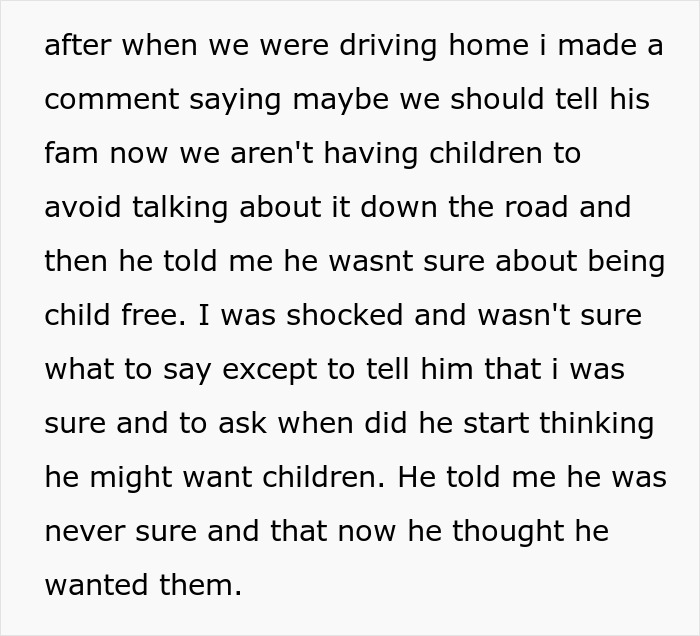

Image credit: Yan Krukau/Pexels (not the actual photo)

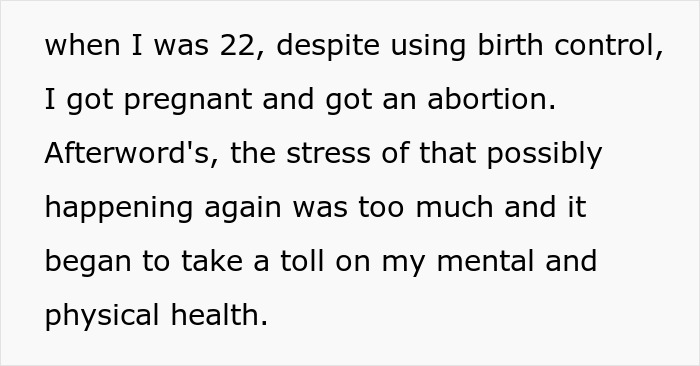
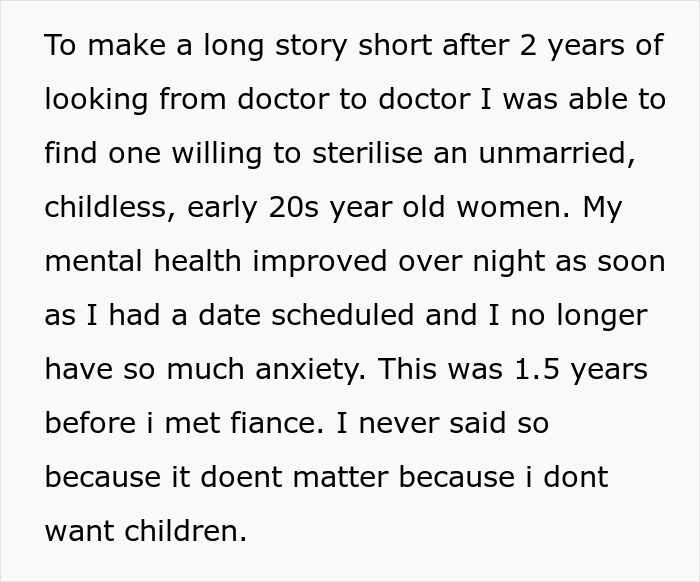


Image credit: RDNE Stock project/Pexels (not the actual photo)
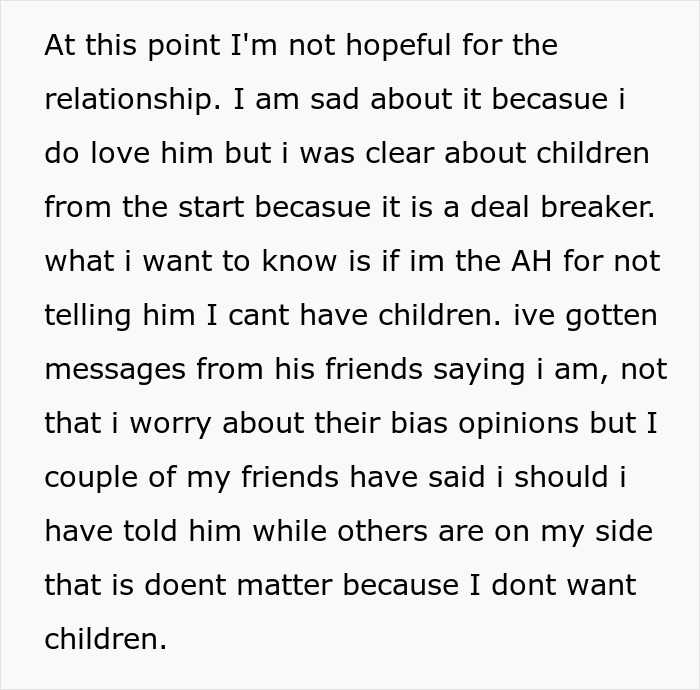

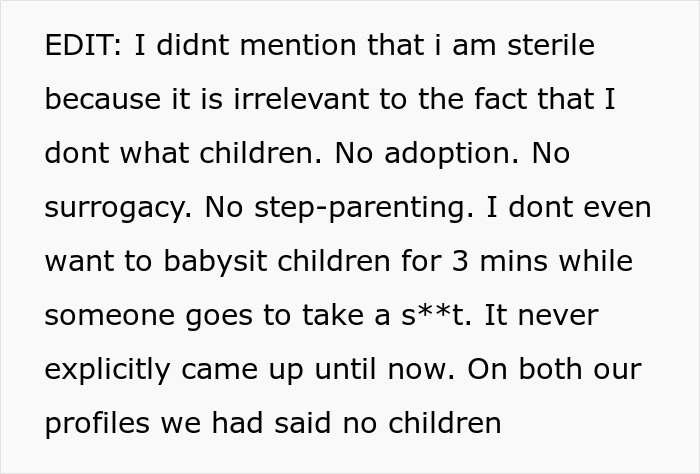
Discussing the ability to have children should be done as soon as the couple starts seeing a long-term future together

Image credits: Antoni Shkraba/Pexels (not the actual photo)
Although it can be a tough conversation, it’s important that partners discuss their stance and ability to have children. To learn more about the intricacies surrounding it, Bored Panda reached out to licensed professional counselor Mark Verber.
He says that the timing of discussing this issue might be unique to each couple. However, generally, this should be done as soon as possible, ideally once the couple starts seriously seeing a long-term future together. “Early on in dating can be too soon because the topic isn’t aligned with the status of the relationship,” he explains.
“If the subject of having children is coming up, or topics such as moving in together, significant financial purchases, or changing jobs to suit the relationship – that’s a pretty good indicator that it’s time to broach the conversation,” Verber adds.
He also mentions that it’s important to keep in mind that the longer the conversation stays in a person’s head, the more difficult it will become. On the other hand, the longer it’s out in the open, the easier it will get.
“Shoot for a time when you are likely to be present, relaxed, and in a place that allows for both retreat and reconnection”

Image credits: Juan Vargas/Pexels (not the actual photo)
To make it easier to start such a conversation in the first place, Verber recommends scheduling it when the partner is at ease. “When someone is tired, stressed, or distracted, they are less receptive. Shoot for a time when you are likely to be present, relaxed, and in a place that allows for both retreat and reconnection,” he says.
He also points out, “It should go without saying, but it bears emphasizing that the conversation should take place in person – not via text. Texting may be efficient, but it is not productive in this case.”
Veber further reminds us that “despite the importance of being intentional with timing, it will never be perfect. Waiting for the perfect time or words usually leads to lots of waiting and very few words.”
When approaching this sensitive topic, he often teaches couples to “T” it up for one another, which means prioritizing timing, tone, and tact. “The focus is on when, how, and what is said. It’s also important to understand that this is not likely to be a single conversation but rather an unfolding process of several,” he said. “Try not to judge the ultimate response by the initial reaction. Acceptance and understanding can grow with time. A plan for how to navigate moving forward is essential but secondary.”
While discussing the stance and ability to have children can be a game-changer in a relationship, it doesn’t have to be a deal-breaker. In fact, an OkCupid study found that 72% of respondents would still stay with a partner even after finding out that kids are off the table. More specifically, 75% of men and 67% of women would stay with a significant other who isn’t able to have children and isn’t willing to adopt.
Verber concludes by saying, “As difficult as it is, I encourage people to view situations like this as an ‘annoying opportunity.’ It’s not something you would choose, and it’s not easy, but it can be an opportunity. Couples grow closer and relationships become stronger by responding to adversity in a positive way.”
The author answered a few questions for readers
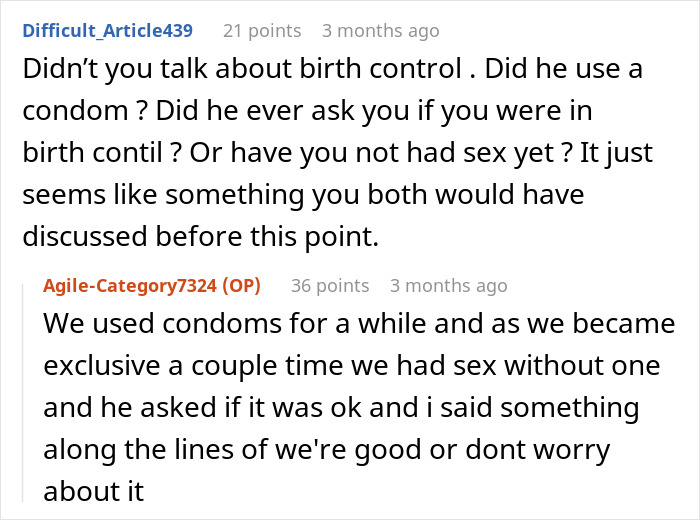
Meanwhile, they titled her as not wrong
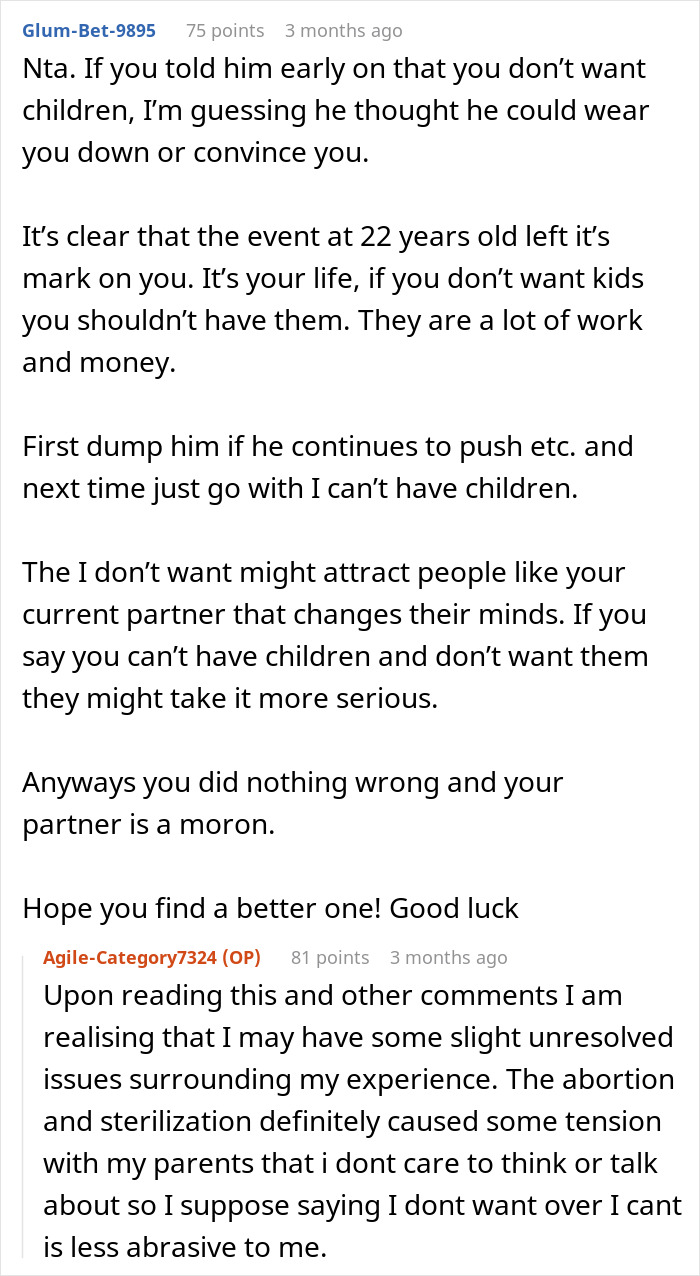

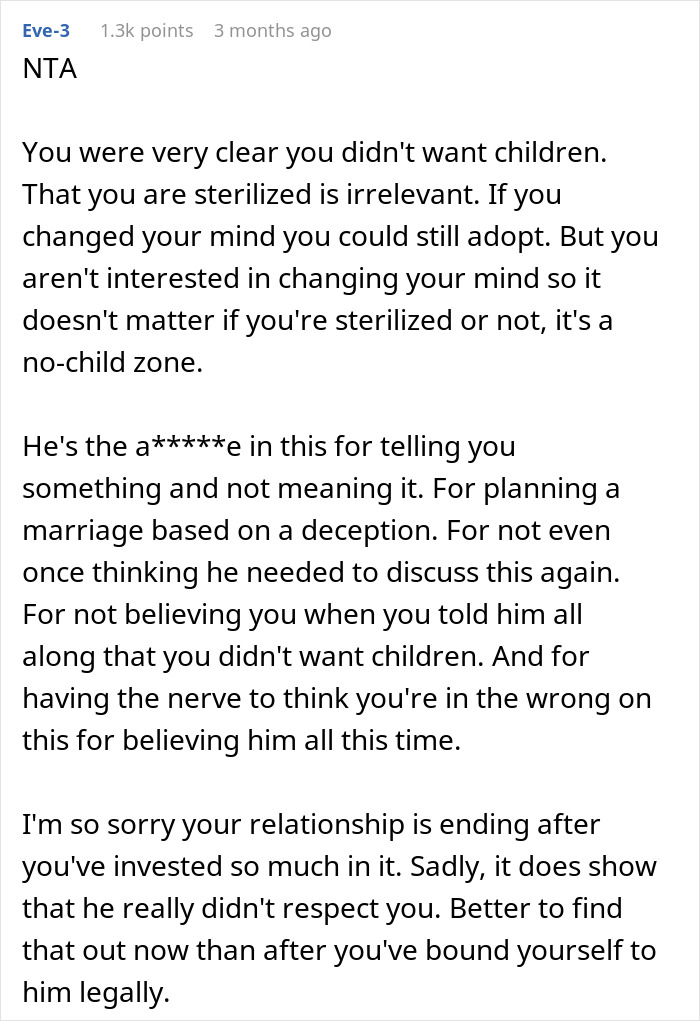

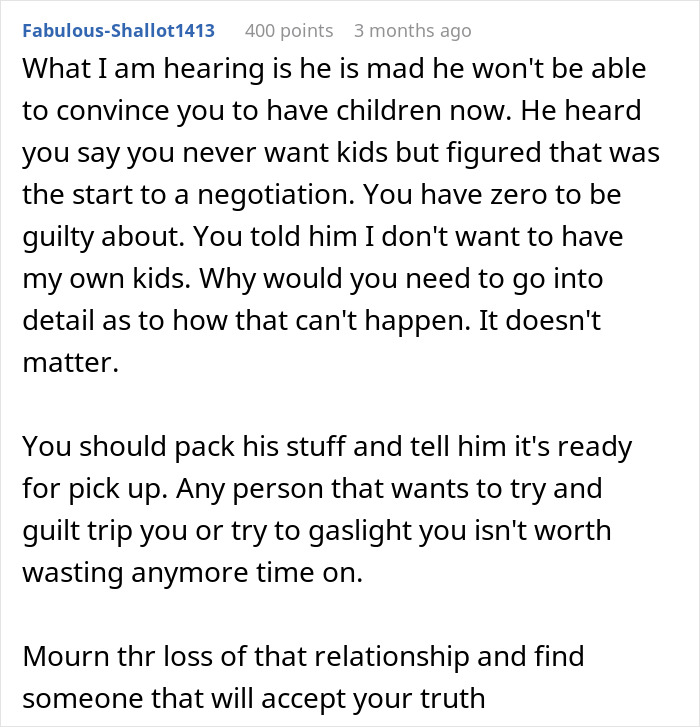


Some even shared similar stories
